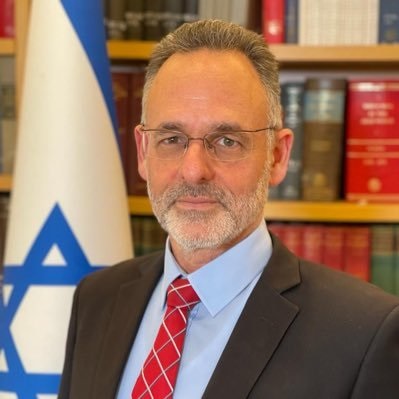Canada, tense relations also with Israel
TORONTO – After China and India, Israel now also has difficulty relating with Canada, at least according to what emerges from the words of the Israeli ambassador to Canada: the war that began a year ago in the Middle East has put a strain on his country’s strong and enduring relationship with Canada.
In a recent interview with The Canadian Press, in fact, Iddo Moed said that the war has united Israelis across the political spectrum in solidarity, but has caused confusion over Canada’s position on the conflict.
As is sadly known, on 7 October one year ago, Hamas militants and its affiliates in the Gaza Strip stormed the border with Israel, killing 1,200 civilians and soldiers and kidnapping 250 people. Israel’s response has been extremely harsh: more than 43,000 people have been killed in Palestine in a war that has lasted for more than a year and, instead of ending, is spreading to neighboring countries. UN officials say no place is safe as the Israeli army continually asks Palestinians to evacuate areas they often end up bombing, and the same is now happening in Lebanon. The war has produced a daily display of gruesome images from Gaza, of bombed refugee camps, children incinerated or missing limbs and hospital patients set on fire. Because of all this, Canada – like other countries around the world – has expressed concern that Israel may be exceeding its right to self-defense and violating international humanitarian law: but it is a position that Israel rejects.
“We are traumatized by October 7. We are still coming to terms with what happened there, with the expression of violent and barbaric hatred” Moed said, adding that Israeli society has largely coalesced around the need to defeat Hamas , even though polls show a deep division in Israel over whether continuing the war is worth it. The ambassador noted that his country faces not only Hamas, but also Hezbollah in Lebanon, Houthis in Yemen and the Iranian military. “Israel is going through the most difficult period since its creation” he said. Israeli communities near Gaza and Lebanon remain abandoned, with families living in hotels that were once packed with tourists. Israel’s central bank continues to cut economic growth forecasts.
In Canada, humanitarian concerns over the war in Gaza led Parliament to vote in March to block approval of new military export permits to Israel and review previous permits. Canada does not have a military embargo against Israel, but has banned the use of Canadian weapons in Gaza. The same concerns led Canada to abstain from voting on United Nations resolutions denouncing Israel, after decades of defeating motions that Canada said were unbalanced.
“This departure from a principled position is very, very disappointing for us” Moed said, arguing that these resolutions do not seek peace but instead aim to “weaken Israel diplomatically and politically, as much as possible” as well as the restoration from part of Canada’s funding to a United Nations agency for the Palestinians (UNRWA), which the Canadian government says is essential to providing life-saving aid to Gaza. This position is also irreconcilable with those of Israel which continues to maintain that hundreds of Palestinian militants work for UNRWA and that more than a dozen employees took part in the attack on 7 October 2023 in Israel. UNRWA investigated 19 employees accused of taking part in the attack and fired an unspecified number, but the agency has 30,000 employees.
Another “problem” is that Canada has repeatedly said that long-term peace will only be possible if a Palestinian state exists. Ireland, Spain and Norway expressed similar concerns in May, when they formally recognized the State of Palestine. Most of South America, Africa and Asia have already done so, although few of Canada’s allies have. But in July the Israeli parliament overwhelmingly rejected the idea of a two-state solution by a vote of 68-9. And Moed himself said that progress towards a Palestinian state would only reward Hamas for its attack at a time when Israel faces threats on multiple fronts. He said Israelis believe that most Palestinians do not respect the existence of the State of Israel, making it impossible to live in peace. Not only that: he also stated that there is strong support among the Palestinian population for Hamas. “We do not see a leadership emerging on the Palestinian side that is capable and capable of changing the mentality of the majority of Palestinians,” he said. And, according to Israel, it is no coincidence that Palestinian leaders did not condemn the October 2023 Hamas attack.
On the other hand, the Palestinian ambassador to Canada, Mona Abuamara, in turn stated that peace can only be achieved if people understand that decades of occupation of the Palestinian territories by Israel – together with the air, sea and land in Gaza – led to the accumulation of grievances that “generated” the Hamas attack.
She also argued that the closure of negotiating channels and the failure to use non-violent tools such as boycotts and sanctions force the Palestinians to resort to what Western countries classify as terrorism and which other states instead consider armed resistance against violent occupation. “It didn’t all start on October 7, 2023,” Abuamara said in a recent interview with The Canadian Press. It’s an old story.
In the pics above: Palestine’s ambassador to Canada, Mona Abuamara (from her Twitter X page – @MonaAbuamara) and Israel’s ambassador to Canada, Iddo Moed (from his Twitter X page – @MoedIddo)




